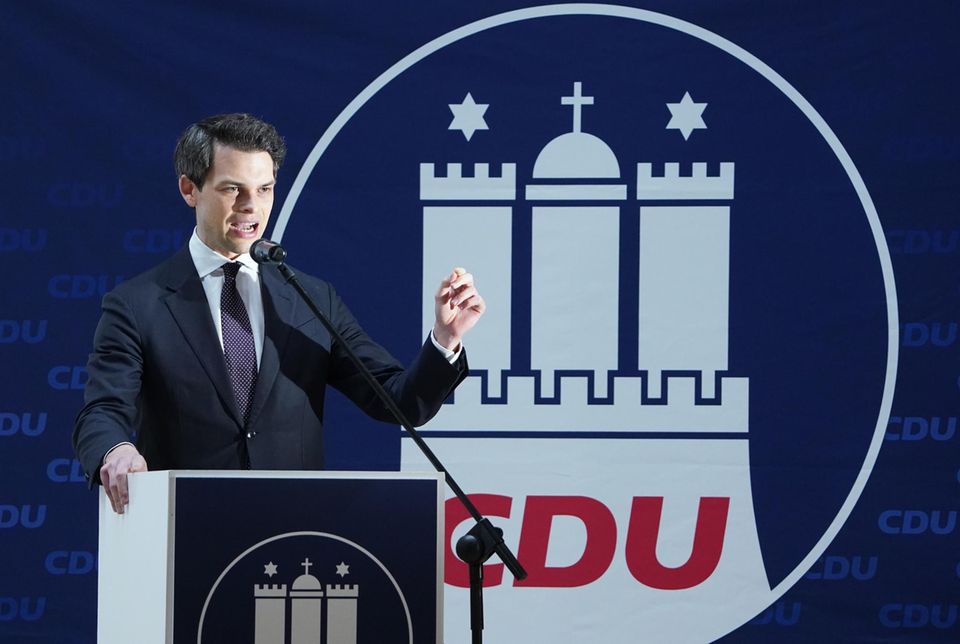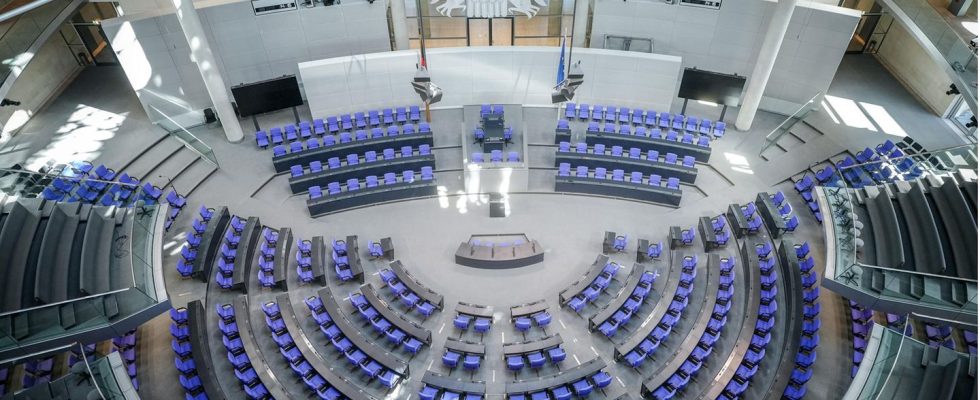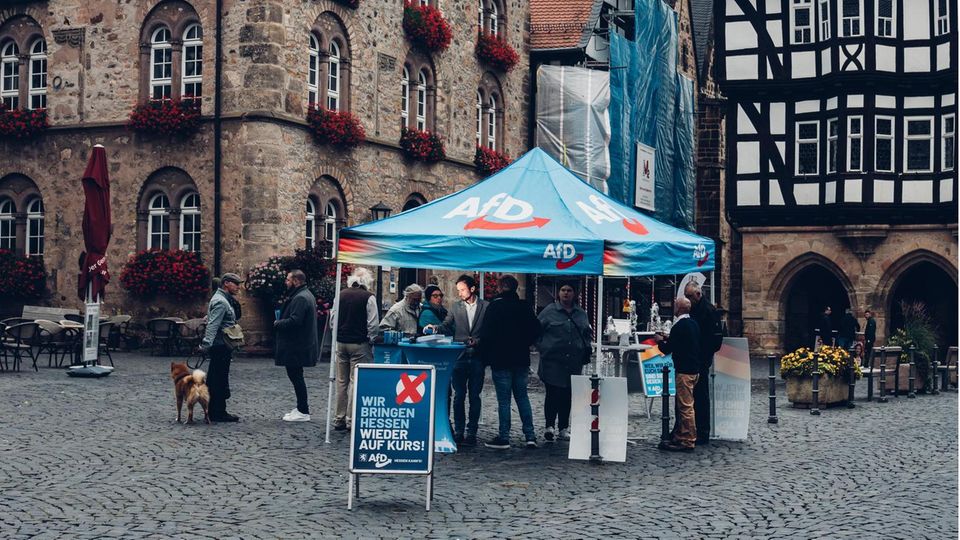The centrist parties are currently being questioned by extremists of all stripes. The Union is particularly feeling this at the moment. The CDU member of the Bundestag Christoph Ploß says: It is time to change something in dealing with the AfD.
The history of the Federal Republic of Germany after the Second World War is a success story. After the heinous crimes of National Socialism, it was anything but self-evident that within just a few decades our country would establish a stable, socially deeply rooted democracy, achieve international recognition and, as Franz-Josef Strauss once put it, go from being the “biggest pile of rubble in world history”. “Europe’s strongest economic power”.
Essential for the rapid establishment of a functioning democracy with strong institutions were the large popular parties, which successfully integrated key trends in society, and a political discourse that was characterized by moderation and a search for compromise compared to other countries. The resulting political stability was the foundation for the economic development that enabled so many people to work and achieve social advancement.
The institutions that have made Germany so successful, the parties of the political center and liberal democracy as a whole are currently being questioned by populists and extremists of all stripes. The CDU is particularly feeling this at the moment. As the historian Andreas Rödder correctly states: “The AfD has the goal of destroying the Union.” How should the democratic center deal with this?
The answer can only be to uphold our democratic institutions, standards and traditions. Historical experience shows that the institutional dams that protect liberal democracies from the rising tides of their opponents are very difficult and time-consuming to rebuild once they have been torn down.
The AfD representatives are democratically elected
The unfortunately now common practice in the German Bundestag of keeping the AfD out of the actually cross-party presidium of the Bundestag fills me with concern. The election of an AfD representative, which was rejected by a clear majority in almost every meeting, is obviously no longer about the people standing for election, but rather about denying a party a right to which it is entitled according to democratically decided rules of procedure.

CDU politician Christoph Ploß
© Marcus Brandt / Picture Alliance / DPA
To be clear: The AfD is, at least in part, a right-wing extremist party. As democrats, we must not cooperate with her and never become dependent on her. However, their representatives are democratically elected and parliamentary minority rights are a valuable asset! Undermining them poses far greater dangers to our democracy than a single member of a parliamentary presidium could inflict on it.
This not only weakens the non-partisan character of the Bundestag Presidency and thus the institution itself. It also damages our democracy as a whole if it is perceived as not abiding by its own rules and principles. All of this without achieving the desired success: Neither the current poll numbers at the federal level nor the recent election results in Hesse and Bavaria indicate that this strategy would have led to a weakening of the AfD.
A look at other European countries or the USA also shows that pure exclusion and isolation strategies are not successful. This is, among other things, because they are not only directed against the parties and their representatives, but almost always also against the concerns of their voters.
The CDU must draw self-confidence from its history
We should expose the representatives of these parties as populists and extremists; any cooperation with them is forbidden; The CDU has a very clear decision on this. But we have to seriously address the issues that concern their voters. The CDU can and should draw self-confidence from its historical heritage: it was not populist screamers or the siren songs of the anti-democrats that moved our country forward, but rather civic virtues, a social market economy and an unshakable belief in democracy and its institutions. From this, the CDU should confidently develop its own approaches instead of simply reacting to growing parliamentary factions on the political fringes.
We have already been successful in this regard: The “Republicans” disappeared into insignificance again after the SPD and CDU took people’s concerns seriously with the asylum compromise in the early 1990s. In Denmark, the populists have been losing support since a social democratic government made a U-turn in immigration policy and is now focusing on consistently and seriously combating illegal migration.
The AfD had also almost disappeared from the scene again – after the euro crisis was at least contained thanks to the decisive action of the CDU-led federal government. In the summer of 2015, according to all major survey institutes, it was between three and four percent nationwide. It only reached double-digit poll numbers again in the winter of 2015, when more and more people had the feeling that their concerns about unlimited immigration were not being taken seriously by the other parties.
Our institutions need every kind of legitimacy
Ignorance of people’s concerns, as shown by the traffic light coalition when it came to the heating law, brings suspicion of democratic parties and institutions into the middle of society – and drives voters into the arms of populists and extremists.
Our response to the rise of populist and extremist parties must not be to fall into a paralysis of fear and possibly irreparably damage important democratic institutions by excluding these parties from the very places where they are entitled to democratic minority rights. Instead, the democratic center must be courageous and self-confident, dare to be more, not less, democratic, take the political concerns of voters seriously, enable sensible compromises and strengthen our democratic institutions.
Because we will never need this more than when our democracy has to prove its ability to defend itself: when laws are broken or anti-democratic efforts can be proven. Then our constitutional state must take strict measures – and then our democratic institutions need every ounce of legitimacy, credibility and trust that we can give them.
Christoph Ploß, 38, has been a member of the Bundestag for the CDU since 2017. He was the Hamburg state chairman of his party until April 2023. Ploß repeatedly intervenes pointedly in current debates. He is considered a representative of the more conservative wing of the CDU and a conscientious athlete. Hamburg residents often see him jogging along the Alster.


